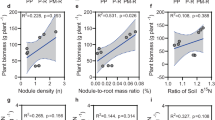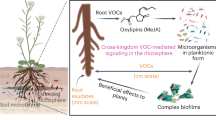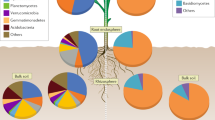Abstract
DRECHSLER1 has described in America more than a dozen species of Phycomycetes parasitic on nema-todes and terricolous amœbæ. These he places in the Zoopagaceæ, a family of uncertain taxonomy, related to the Mucorales. To the best of my belief, no members of this family have been recorded in Europe, with the possible exception of some organisms described by Penard2 in 1913, and placed by him, probably incorrectly, in the Saprolegniaceæ. It may be of interest, therefore, to record the finding of four species of Zoopagaceæ in plate cultures inoculated with leaf-mould from wooded areas in the Cotswolds.
This is a preview of subscription content, access via your institution
Access options
Subscribe to this journal
Receive 51 print issues and online access
$199.00 per year
only $3.90 per issue
Buy this article
- Purchase on Springer Link
- Instant access to full article PDF
Prices may be subject to local taxes which are calculated during checkout
Similar content being viewed by others
References
Drechsler, C., Mycologia 27, 6–40; 176–203; 206–215 (1935).
Penard, E., Arch. Protistenk., 28, 78–140 (1912–13).
Author information
Authors and Affiliations
Rights and permissions
About this article
Cite this article
DUDDINGTON, C. Predaceous Phycomycetes from Cotswold Leaf-Mould. Nature 145, 150–151 (1940). https://doi.org/10.1038/145150a0
Issue Date:
DOI: https://doi.org/10.1038/145150a0
This article is cited by
-
Fungi that attack microscopic animals
The Botanical Review (1955)
Comments
By submitting a comment you agree to abide by our Terms and Community Guidelines. If you find something abusive or that does not comply with our terms or guidelines please flag it as inappropriate.



